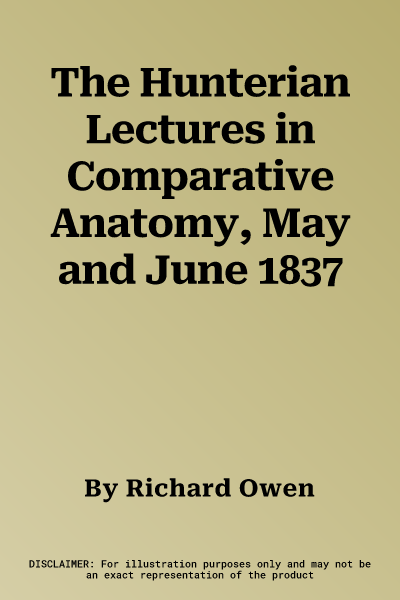Sir Richard Owen (1804-1892), comparative anatomist, colleague and later
antagonist of Darwin, and head of the British Museum (Natural History),
was a major figure in Victorian science, and one of the least well
known. Historians of science have found Owen a difficult subject, partly
because he seldom wrote at length about his theories of the nature of
life. However, his contemporaries--Darwin, Lyell, Grant, Huxley, and
others--certainly knew his ideas and agreed or argued with him while
developing their own views.
Now, for the first time, modern readers may consult the single sustained
exposition of his views that Owen ever provided: his Hunterian Lectures.
Phillip Reid Sloan has transcribed and edited the seven surviving
lectures and has written an introduction and commentary that situate
this work in the context of Owen's life and the scientific life of the
time. The lectures survey some of the history of comparative anatomy
since Aristotle and draw on work by some of Owen's contemporaries. Their
chief value, however, lies in Owen's elucidation of his own view on the
relationships among various groups of living things.
Owen is one of the linchpin figures of Victorian science. The
publication of these lectures is important, and Sloan is to be commended
for a fine transcription.--Adrian Desmond, University College, London

